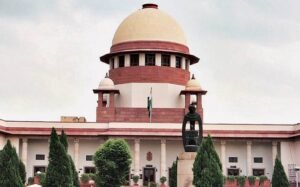Legality Of Order Setting Defendant Ex Parte Can Be Challenged In Appeal Even Without Filing Application Under Order IX Rule 13 CPC
Case: G.N.R. Babu @ S.N. Babu vs Dr. B.C. Muthappa
Coram: Justices Ajay Rastogi and Abhay S. Oka
Case No.: CA 6228 OF 2022
Court Observation: “In this case, the question is when the defendant did not avail the remedy under Rule 13 of Order IX of CPC, whether it is open for him to agitate in the regular appeal against the decree that the trial court had no justification for proceeding ex parte against the appellant. In such a case, though the appellant would not be entitled to lead evidence in appeal for making out a sufficient cause for his absence before the trial court, he can always argue on the basis of the record of the suit that either the suit summons was not served upon him or that even otherwise also, the trial court was not justified in proceeding ex parte against him. The reason is that under Section 105 of CPC, when a decree is appealed from, any error, defect or irregularity in any order affecting the decision of the case can be set forth as a ground of objection in the Memorandum of Appeal. Thus, in such a case, the appellant can always urge in an appeal against the decree that an interim or interlocutory order passed during the pendency of the suit affecting the decision of the case was illegal. Therefore, the appellant, while challenging ex parte decree by filing an appeal, can always point out from the record of the trial court that the order passed to proceed with the suit ex parte against him was illegal. As held in the case of Bhanu Kumar Jain , only when the application made by a defendant under Rule 13 of Order IX of CPC is dismissed that such a defendant cannot agitate in the appeal against ex parte decree that the order directing that the suit shall proceed ex parte was illegal or incorrect. However, in this case, the appellant has not filed application under Rule 13 of Order IX of CPC.”
Previous Posts




